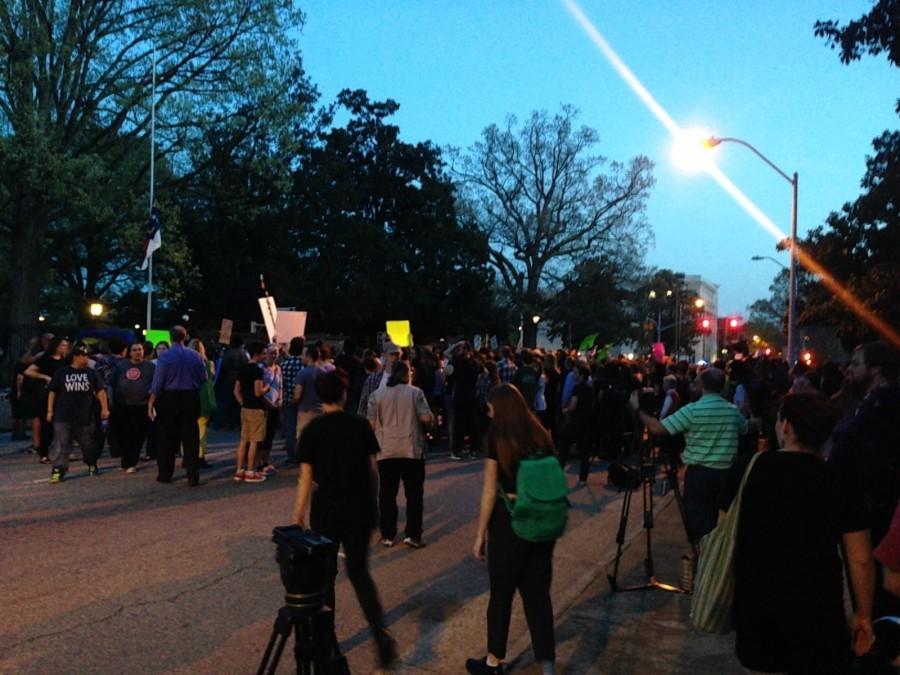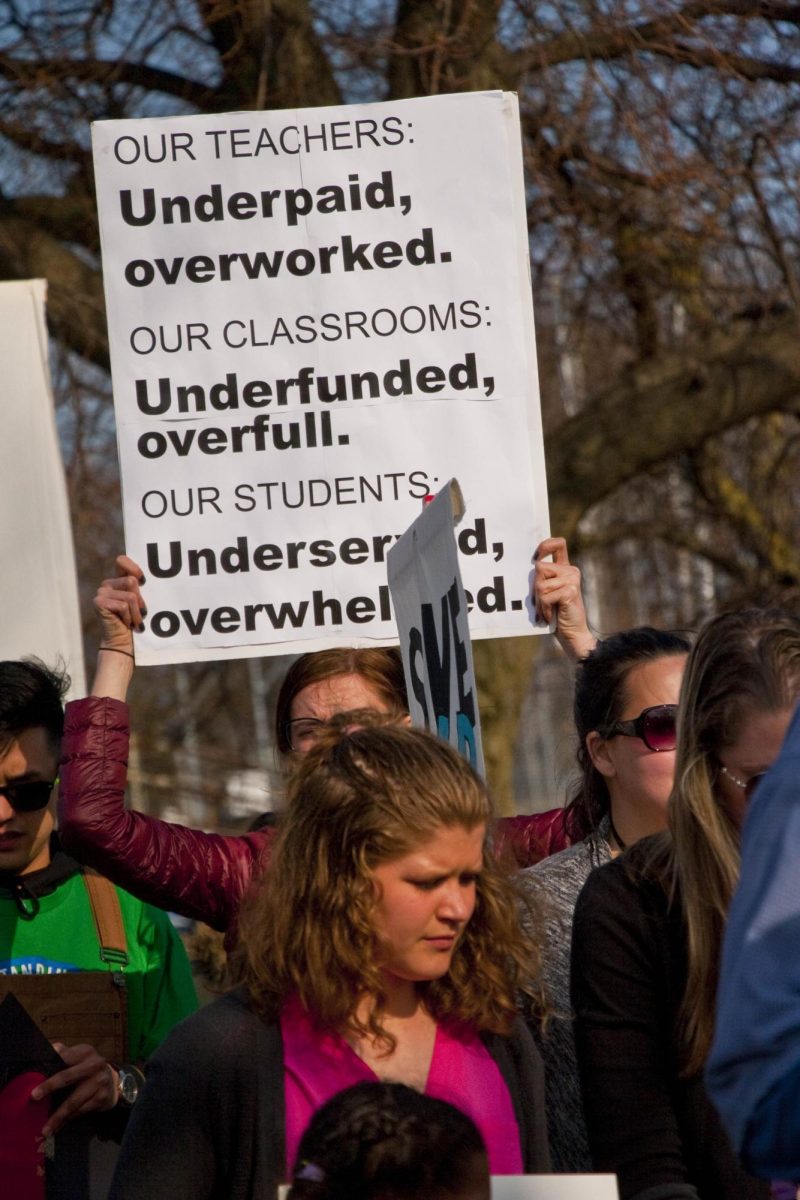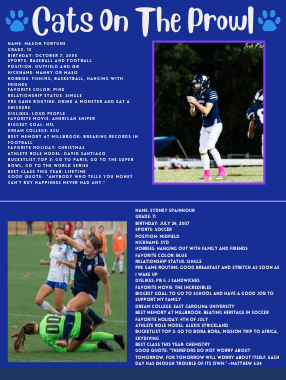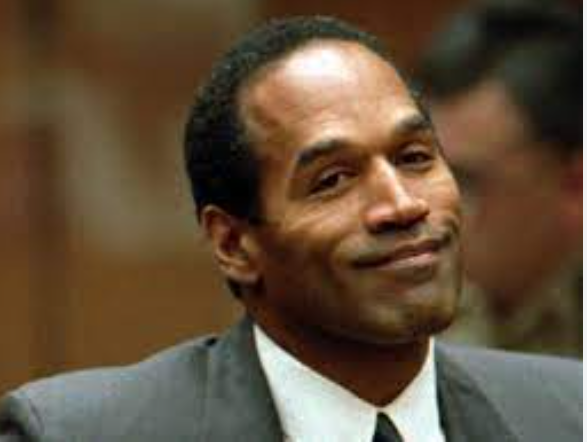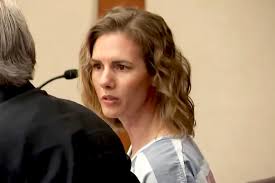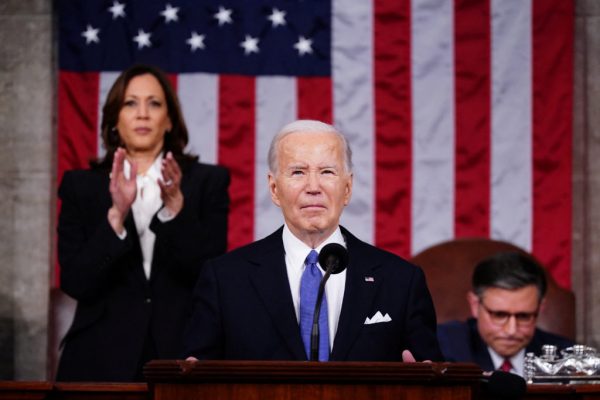Bathroom bill goes down the toilet
Chanting slogans like, “Trans lives matter,” protesters shut down Blount street in front of the Governor’s Mansion. Hundreds of people and businesses have turned against Pat Mccrory after he passed House Bill 2.
April 9, 2016
Charlotte passed an ordinance in February that stated LGBT people would be granted protection in places of “public accommodation,” which, among other things, would allow transgender people to use the bathrooms of the gender they identify as. This ordinance was to go in effect on April 1. In response, a special session was called for North Carolina’s General Assembly. Lawmakers proposed and passed the House Bill 2 (HB2), also known as the “Bathroom Bill,” and Governor Pat McCrory signed it into law that same night. The bill was passed within 12 hours, giving each state lawmaker only five minutes to read the bill and only allowing two testimonies to be heard, one for and one against the bill. The law passed unanimously by Republicans when Democrats walked out of the House in protest.
House Bill 2, the Public Facilities Privacy & Security Act, puts in place a statewide policy that bans individuals from using public bathrooms that do not correspond to their biological sex. The bill also reserves the right to pass nondiscrimination legislation to the state government, saying state laws preempt any local ordinances. Due to the all inclusive terms of the ban, the LGBT community is not only affected but also single parents with children who are the opposite sex, parents with children of the opposite sex who are mentally or physically disabled, or elderly people with caretakers of the opposite sex cannot use the restroom together. This applies to children over the age of seven. Minimum wage also falls under the state’s antidiscrimination law, so this new law means local governments are not able to set their own minimum wages beyond the state standard. When asked about their thoughts on the bill, freshman Eli McCarthy said, “Honestly, it was a prime example of making up a ridiculous excuse to justify and promote discrimination against LGBT folks, and it really made me angry to learn that our state is not the only one responsible for bills like this.”
Demonstrations against the bill were scheduled less than 24 hours after it was passed. Around 500 people attended the rally, led by NAACP, and there were around 600 to 700 demonstrators outside of the Governor’s Mansion. Another protest was planned a week after, focusing on the families that were affected with many children being present. The new law has also affected relations with businesses based in North Carolina and even other states. Paypal pulled out of development plans in Charlotte, so over 400 potential jobs were lost. Senior Maya Robinson said, “The loss of those jobs is going to keep affecting the state as more and more businesses take Paypal’s example.” The governor of New York banned non-essential state funded travel to the state. The most recent example in the string of cancellations and companies leaving, Bruce Springsteen canceled his concert in Greensboro. Supporters of the new law say that Charlotte’s measure to try and expand North Carolina’s anti-discrimination law was an overreach by the government of the city. They also argue that this is a matter of safety for women and children in public restrooms and showers. LGBT activists say that safety has not been an issue in the 18 states or the more than 100 cities where protections for gay and transgender people already exist. North Carolina will definitely feel the repercussions of its action in the following months.


